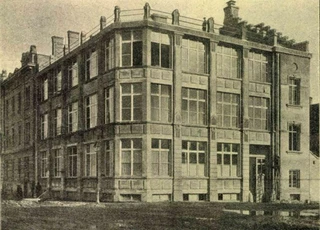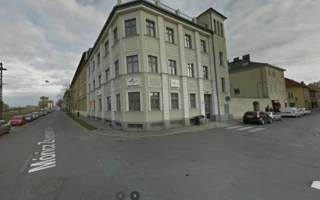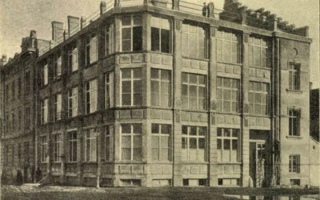Contact details
Foundation for Industrial History of Győr
Szent István út 10/a
Phone:
+3696520274
Fax: +3696520291
E-mail:
ipartortenet@ipartortenet.hu
Map
Zeiss optical factory
| Address of the memorial site, route planning | ||
| What can we see at the memorial site? | ||
| Brief overview | ||
| Related gallery |
| MEMORIAL SITE ADDRESS, ROUTE PLANNING |
| WHAT CAN WE SEE AT THE MEMORIAL SITE? |
Street view:
| BRIEF OVERVIEW |
|
Zeiss optical factory in 1910 The Zeiss factory in Győr. Honi Ipar, December 15, 1910, issue 24, page 46.
Carl Zeiss Jena, the world's oldest optical factory, wanted to establish a factory in Győr after establishing branches in England and France, for which the Minister of Finance granted tax exemption in September 1909. The new three-story building was built on the north-eastern corner of Dunakapu Square and on Dunaszer – today Móricz Zsigmond Wharf – into which the factory, which had been operating in its previous temporary location, moved on November 1, 1910. The building, which was the first and only optical, mechanical and physical instrument factory of its kind in Hungary at the time, stood out from its surroundings. Almost one-third of it was glass, with spacious, bright rooms, where the trained Hungarian workers could work comfortably warm even in winter, with electric lighting, thanks to central heating. The factory was transformed into a joint-stock company under the name Zeiss Károly Rt. in 1914 , which developed uninterruptedly until 1918, thanks to the state's military industry orders. Coal shortages, rising raw material prices, and falling orders meant that the loss-making factory was in a state of stagnation between 1920 and 1928. As a result of the Great Depression, production ceased for a while in the factory. Despite a financial rescue package from the parent company in Jena, bankruptcy proceedings were initiated, and the factory was liquidated by December 1942. The building, which suffered minor damage in World War II, was given to the Győr Hungarian Wagon and Machine Factory as a training center after nationalization, then sold by the Rába factory, and has been functioning as an office building since 2015. |
||

Related gallery
Back to the previous page!




